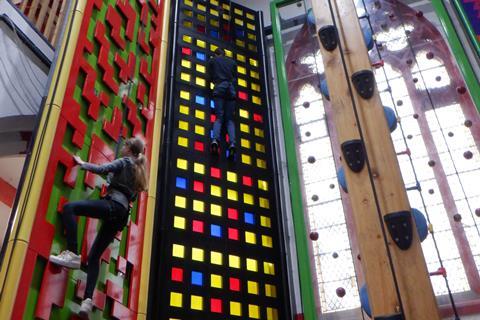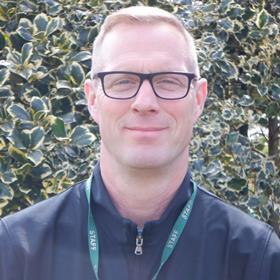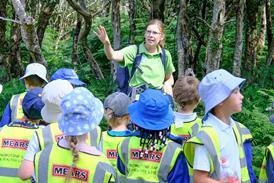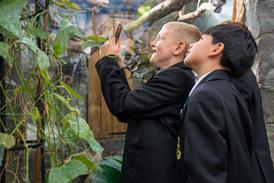Gavin Dixon, assistant head at Crosby High SEND school in Merseyside tells us how they embed learning and where they have been on visits.

Tell us about your role and the profile of your school and students
I have worked at the school for 18 years. Along with a teaching commitment, I currently lead on Learning Outside the Classroom, post-16 transition, careers education and I am also the school’s EVC.

Crosby High School is an 11-16 SEND school. We are very fortunate that our location is coastal with both urban and rural settings to utilise. The school’s population of 170 students is diverse in terms of additional needs.
What are the main considerations when you are assessing school visits?
Prior to working in SEND I was at a mainstream secondary school for 12 years. I approach and consider visits the same, regardless of setting. There may be some additional barriers due to medical needs or accessing some of the more physical environments we go to, but we try to be fully inclusive. We do not limit ourselves or the children. A major consideration is that we want students to benefit from visits and experience a range of different activities. Additional needs should not prevent you from accessing the community and beyond.
Could you tell us some of the places pupils have been on school trips over the last year?
Visits over the last year have included the Royal Albert Dock, where Year 11 students visited businesses and met employers to research employability skills. A regular location is Liverpool city centre which offers an excellent selection of free museums and art galleries including the World and Maritime Museum, Philharmonic Hall and Walker Art Gallery.

Further afield there have been outings to North Wales, the Imperial War Museum in Salford and Jodrell Bank observatory. Visits are often to the Sefton coastline and neighbouring rural areas to engage in wellbeing activities or to support teaching and learning. Our Blue Badge Parking is well used when we go out in the school minibuses too.
What do you have coming up this year?
We are keen to renew our international visits, which were a feature of school life prior to the pandemic. Staff have discussed a trip to Northern France to visit the battlefields. We also have our Key Stage 4 residential to Play Away, Eshton Grange centre just outside Skipton in North Yorkshire. Students will visit the JCB Headquarters as part of a STEM project and Blackpool Pleasure Beach and Zoo will be our final behaviour reward visit of 2024.
Why is it so important to get the children learning outside the classroom?
We recognise that many of the Education, Health and Care Plan (EHCP) objectives can be met by learning outside the classroom. Therefore, the value of LOtC is embraced by staff. The culture to explore and enrich the curriculum is embedded in school. Visits provide experiences that allow the students to grow in confidence, often taking them outside their comfort zone.
What difference do you see in them from having these experiences?
It is clear that students can draw on their experiences and they create a context for their learning. The ‘conceptual’ becomes ‘more real’ and this develops understanding and knowledge. Students can pick up a new skill or a visit can inspire a pupil to return to a location or experience. Relationships can be strengthened for example, we use a local climbing centre with some students who can struggle with friendships in school. The skills involved in climbing demand that the students work together, listen to instructions, build trust and foster group cohesion. We see the difference in school as interpersonal skills develop and relationships improve over time. School integrates the behaviour reward systems and school values into off-site visits. This positively impacts on attendance and whole school behaviour.
“Additional needs should not prevent you from accessing the community and beyond.”
How do you ensure that learning from school visits is embedded once back in school?
After visits have taken place staff can identify and evidence of learning. This is made clear in pupil’s work and outcomes. Effort, enthusiasm and creativity are tangible. Writing and vocabulary are more colourful. Visits often support literacy and numeracy. Likewise, coursework and student portfolios are enriched. Key Stage 4 pupils gain accreditation as a direct result of visits. Pupils are also asked to reflect on their learning and experiences after visits. This can be verbal or more formal evaluations. As mentioned, staff must share the focus of any visit undertaken. The focus is used to good effect and as a platform for pupil reviews and reflections after a visit has taken place. Year 11 pupils are surveyed when they leave school each year. Visits and residentials are always remembered and listed as one of their favourite things they took part in over the five years they were with us.
Tell us about your involvement with the Council for Learning Outside the Classroom
The Council for Learning Outside the Classroom mentoring process and applying for the Gold Award helped us recognise that we valued LOtC. I would highly recommend the mentoring programme to support school development work.
Would you like to tell us about the work you do in organising educational visits? Get in touch with us by emailing editorial@schooltravelorganiser.com.










